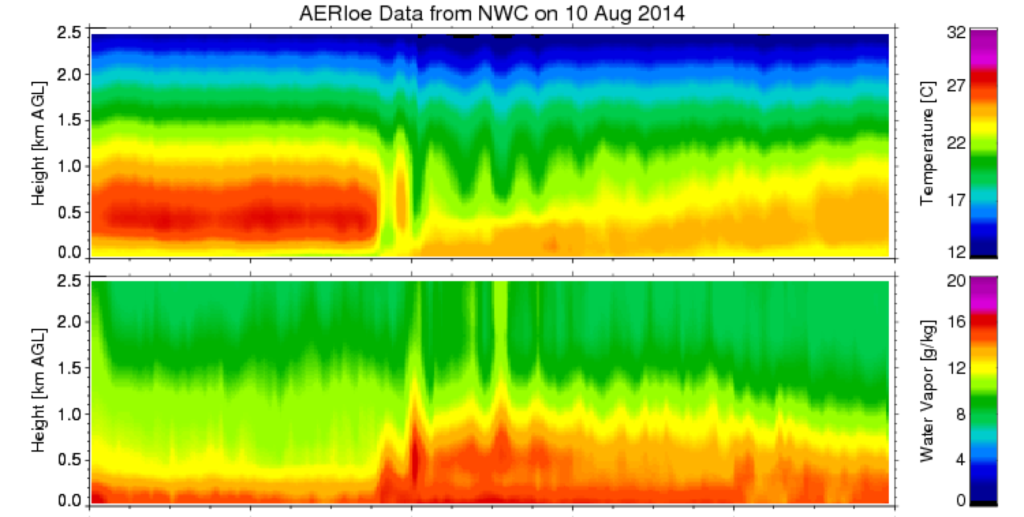AOSS AERI
The AERI is a passive remote sounding instrument, employing a Fourier transform spectrometer operating in the spectral range 3.3–19.2 µm (520–3020 cm-1) at an unapodized resolution of 0.5 cm-1 (max optical path difference of 1 cm). The extended range AERIs (ER-AERI) deployed in dry climates (e.g. the Arctic) have a spectral range of 3.3–25.0 µm (400–3020 cm-1) that allow measurements in the far-infrared region. Two detectors are used, an HgCdTe and an InSb, cooled to cryogenic temperatures, to cover these spectral ranges. The instrument has a zenith angular field-of-view of 46 mrad full angle. The AERI absolute radiometric accuracy is designed to be better than 1% of the radiance of a blackbody at surface ambient temperature. This level of absolute accuracy is important for climate applications as well as for products derived from AERI radiances. The radiometric accuracy is ensured by regular calibration views of two high-quality blackbodies: the Hot Blackbody (HBB) is temperature controlled to 333 K; the Ambient Blackbody (ABB) passively follows ambient temperature. The AERI averages views of the sky over a 16 second interval; The AERI operates continuously and a sky view is taken approximately every 20 seconds.See AERI project homepage for details.
